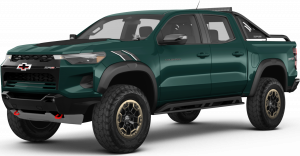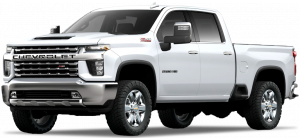
When it comes to oil changes, there is a lot of information—and possibly more misinformation—floating around out there.
You may know that engine oil is a critical lubricant, but do you know what it does and how often it needs changing? Does it matter what brand and grade of oil you put in your vehicle? Who should you trust an oil change too?
If you’re located around Saskatoon, SK, and are looking for an oil change, our Certified Technicians at Sherwood Chevrolet are happy to help.
However, before you head on over, this handy guide might just prove useful.
Read on to learn all you need to know about the oil car, truck, or SUV.
What is oil, and why does my car rely on it?
Oil is the lifeblood of your car’s engine. You may think of that as an exaggeration, but the consequences of running an engine on low oil, or delaying oil changes, can have catastrophic consequences.
Oil is the lubricant that protects the internal components of an engine from rubbing against each other. Each moving part is coated in a thin layer of oil to ensure that friction is greatly reduced. Without it, the metal-to-metal contact can damage an engine, leading to potentially large repair bills.
Why Should Oil be Changed?
Simply put, as time goes on, engine oil loses its ability to lubricate effectively. Every minute an engine is run, the internal fluids are subjected to extreme temperatures, slowly altering the oil’s chemistry.
You may notice that the fresh, rich, golden oil poured into a car’s engine turns black over time. As time goes on, engine oil collects and traps dirt—the larger particles of which are often trapped in the oil filter. The resulting black colour is due to high levels of smaller debris present in the oil.
When Should I Change My Oil?
When to change a vehicle’s oil is always a hot topic and debate. A topic that often leads to pages and pages of feedback in online forums. Unfortunately, there’s no one-size-fits-all answer. It depends on several factors, including your vehicle’s make and model, driving conditions, and usage patterns.
We’d recommend consulting your owner’s manual for the recommended oil change interval. Older vehicles commonly require oil changes every 5000 km. Still, with new advances in manufacturing and the introduction of synthetic oils (more on those later), intervals on modern engines could be as long as 7,500 km or 15,000 km.
However, you should also consider the amount of time spent on the road, not just mileage. For example, if you commute 5 miles in bumper-to-bumper traffic, the toll on your engine may be far greater than what is indicated on your odometer. This is because every minute your engine runs—even at idle—reduces how effective your engine oil is.
With this in mind, it may be a good idea to aim to change your engine oil every six months. It assures protection, and it is also a great way to reset yourself if you’ve lost track of when your last visit to the quick lube was.
If you own a newer car, you may not even have to worry, as the on-board-computer will automatically display a service reminder, which often factors in both mileage and hours run.
What is Engine Oil Viscosity?
Yet another topic that is debated among the car owners: what oil viscosity should be used in your car?
The viscosity is an oil grading system developed by engineers, a regular individual knows them as 5W 30 or 10W 40. Viscosity is the most important thing to know when selecting replacement oil. Once again, we recommend you consult the owner’s manual to choose the correct viscosity oil for your vehicle.
What exactly do those numbers mean?
Each number refers to how easy or fluid the oil is to pour. The number preceding the W is the “winter” metric and measures the oil’s viscosity at zero degrees Fahrenheit (-17.8 degrees Celsius). The lower the number, the less the oil thickens in cold temperatures.
For example, oil with a 5W-30 viscosity grade thickens less than the engine oil with a 10W-30 grade in cold weather.
In high temperatures, engine oil with a 5W-30 grade thins out more quickly when compared to oils with a 5W-40 grade.
The winter number is especially important for our cold-climates in Saskatoon, as it determines how thin the oil is when cold.
If you’re looking for an oil change service in Saskatoon, then you may want to consider Sherwood Chevrolet Certified Service for all of your oil change needs. We service all makes and models and are happy to clear up any doubts you may have regarding oil changes.
Synthetic vs. Conventional
Another factor to consider when looking to change your oil is whether your vehicle needs synthetic or conventional oil. If we break the two down, conventional oil (also known as mineral oil) is highly-refined oil from natural resources. Synthetic oil, as the name suggests, is a blend of oil that is human-made. You also find semi-synthetic oils, which are a blend of the two.
Once again, you should consult your car’s manual, or ask the Oil Change specialist at Sherwood Chevrolet.
Newer cars generally require synthetic oils, as the human-made blends have better properties such as resistance to breaking down and added additives to protect against wear and tear.
If you have an older car that has been run on conventional or semi-synthetic oil, it’s widely advised that you continue to do so. Despite the improvements that some synthetic oils may claim, switching oil types may lead to complications with your engine. If you are changing oil types, it’s recommended that you thoroughly flush your motor with a dedicated engine flush before adding new oil.
The Importance of Oil Filter
When changing your car’s oil, it’s also important to replace the oil filter. The oil filter is just as vital as the oil as it catches any large contaminants that may otherwise create technical problems within your car’s engine.
At Sherwood Chevrolet, we carry out a full visual inspection to ensure that there are no leaks present and that the reinstallation of the oil drain plug and oil filter is done with fresh washers and gaskets.
Checking Your Oil
One of the easiest tasks to take on as a responsible vehicle owner is to check your oil regularly. By doing this once every few weeks, as well as before and after a long trip, you will be able to monitor the condition of your engine and catch any low levels before damage is done. An easy rule of thumb to follow is to check your oil every time you fill your gas tank, but be sure you wait until the engine has cooled down.
Is your vehicle due for an oil change? Book an appointment with Sherwood Chevrolet Service Center today.




















